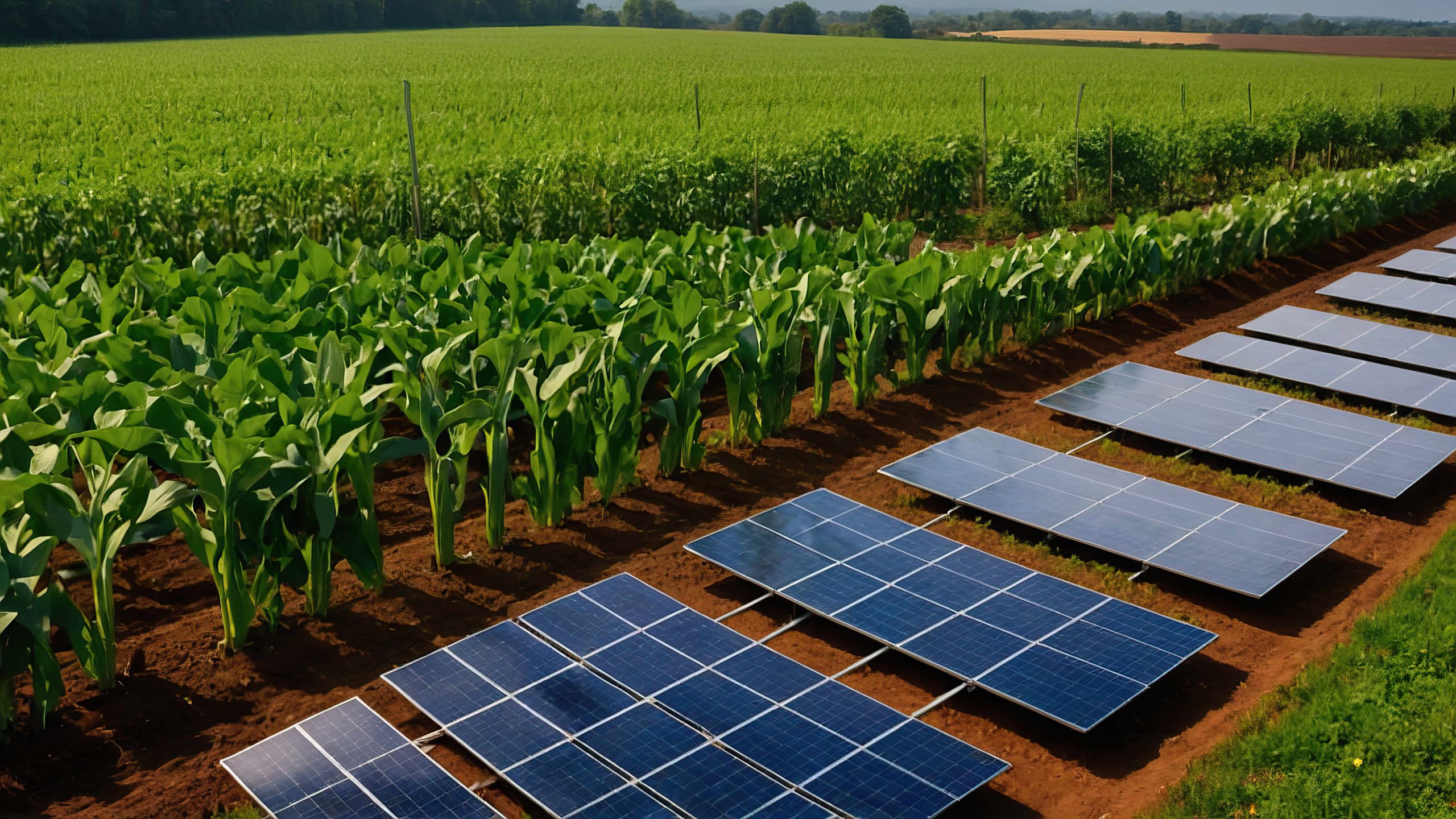
Agrivoltaics: A Marriage of Renewables and Agriculture – Cultivating a Sustainable Future
The traditional image of a farm conjures up sprawling fields bathed in sunlight, a landscape dedicated solely to cultivating crops or raising livestock. But a new approach is emerging, one that marries the bounty of the harvest with the power of the sun. Agrivoltaics, the innovative practice of co-locating solar panels and agriculture on the same land, is transforming the way we think about food production and renewable energy generation.
A Win-Win for Renewables and Agriculture
The UK faces a pressing challenge: balancing its renewable energy ambitions with the need to protect valuable agricultural land. Agrivoltaics offers an ingenious solution. By strategically placing solar panels on farms, we can generate clean energy without sacrificing agricultural productivity.
For farmers, agrivoltaics presents a compelling opportunity to diversify their income streams. Solar panels generate clean electricity that can be sold to the grid, providing a valuable additional revenue source. This can be particularly beneficial for small and medium-sized farms, boosting their financial resilience and contributing to the overall economic sustainability of the agricultural sector.
Beyond Energy: A Boon for Farmers and Crops
The benefits of agrivoltaics extend far beyond just generating electricity. The partial shade created by the solar panels can positively impact crop yields in several ways. In hot and dry conditions, the shade can help reduce water evaporation from the soil, a crucial factor in a country like the UK facing increasing water scarcity due to climate change. Additionally, the shade can protect certain crops from sunburn, especially during periods of intense sunlight.
Research also suggests that agrivoltaics can create a microclimate that benefits certain crops. The panels can act as windbreaks, reducing wind damage and potentially improving pollination rates by creating a more sheltered environment for pollinators like bees and butterflies. This can lead to healthier crops and potentially higher yields.
A Sustainable Solution for UK Farmers
The UK agricultural sector is particularly well-positioned to benefit from agrivoltaics. With a growing focus on sustainable farming practices, agrivoltaics aligns perfectly with this commitment. By adopting agrivoltaics, farmers can demonstrate their environmental responsibility and potentially attract a new generation of eco-conscious consumers looking for food produced with sustainability in mind.
Furthermore, agrivoltaics can help farmers adapt to the challenges posed by climate change. The partial shade provided by the panels can help mitigate the effects of rising temperatures and extreme weather events. This can be crucial for ensuring the long-term viability of farms in a changing climate.
Challenges and Considerations
While the potential of agrivoltaics is undeniable, there are challenges to consider. Optimizing land use for agrivoltaic systems requires careful planning. Factors like row spacing, panel height, and crop selection all play a role in ensuring compatibility and maximizing the benefits for both solar energy production and agricultural activities.
Government support is also crucial for wider adoption. Supportive policies and regulations can incentivize farmers to invest in agrivoltaics, while also ensuring the responsible development of these systems. Research and development are also essential to refine agrivoltaic techniques specific to the UK climate and agricultural practices.
The Future of Food and Energy: A Collaborative Approach
The success of agrivoltaics hinges on collaboration. Farmers, policymakers, researchers, and consumers all have a role to play. Farmers need access to financial support, technical expertise, and clear regulatory frameworks to make informed decisions about adopting agrivoltaics. Policymakers can create incentives and streamline permitting processes to encourage wider adoption.
Researchers can play a vital role in developing best practices for agrivoltaics in the UK context, while consumers can support farms embracing this innovative approach. By working together, we can unlock the full potential of agrivoltaics and cultivate a more sustainable future for both food and energy production in the UK.
A Glimpse into the Future
Imagine a future where farms are not just places of food production, but also hubs of renewable energy generation. Solar panels, strategically placed amongst crops and livestock, silently capture the sun’s rays, contributing to a cleaner and more secure energy future. This is the vision that agrivoltaics promises. By embracing this innovative approach, the UK can ensure a thriving agricultural sector while transitioning to a sustainable and renewable energy future.